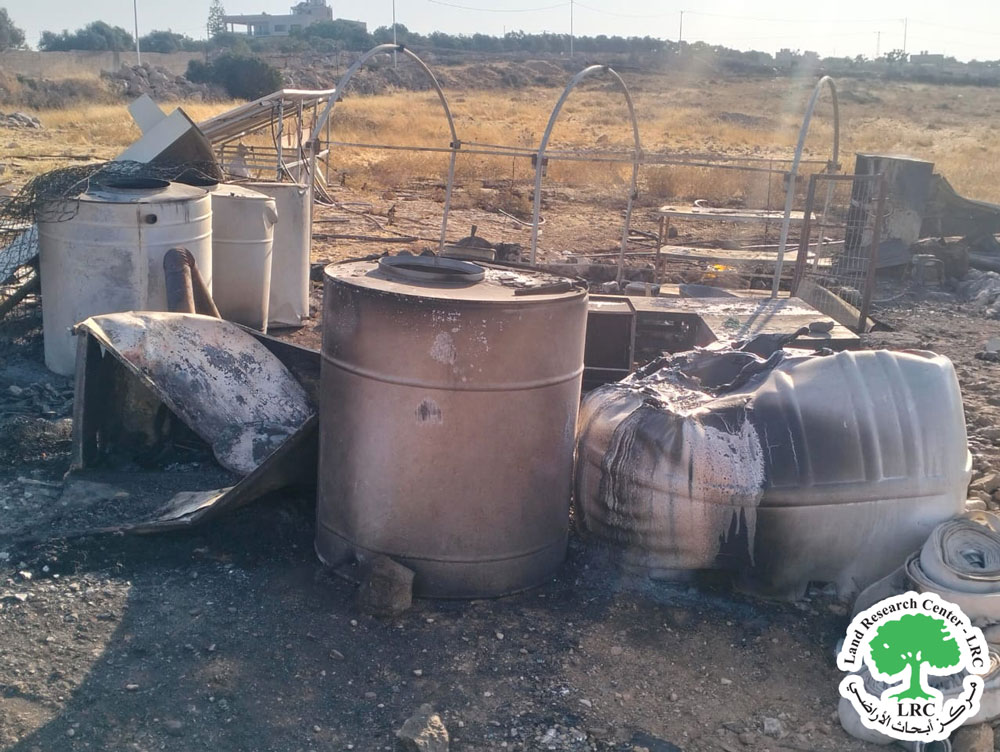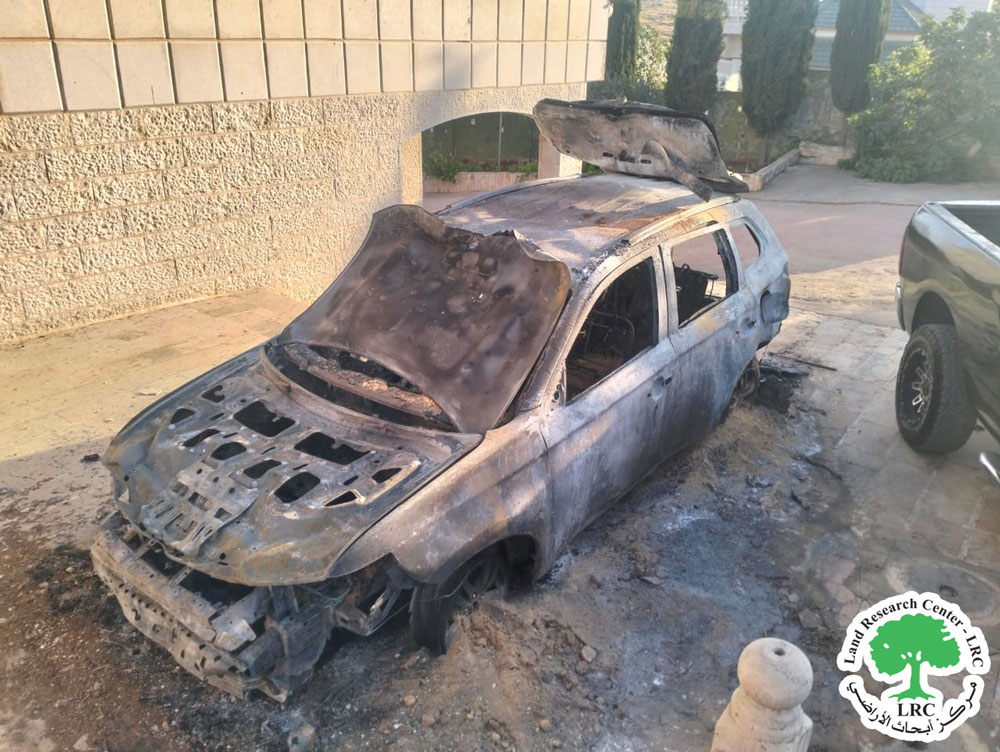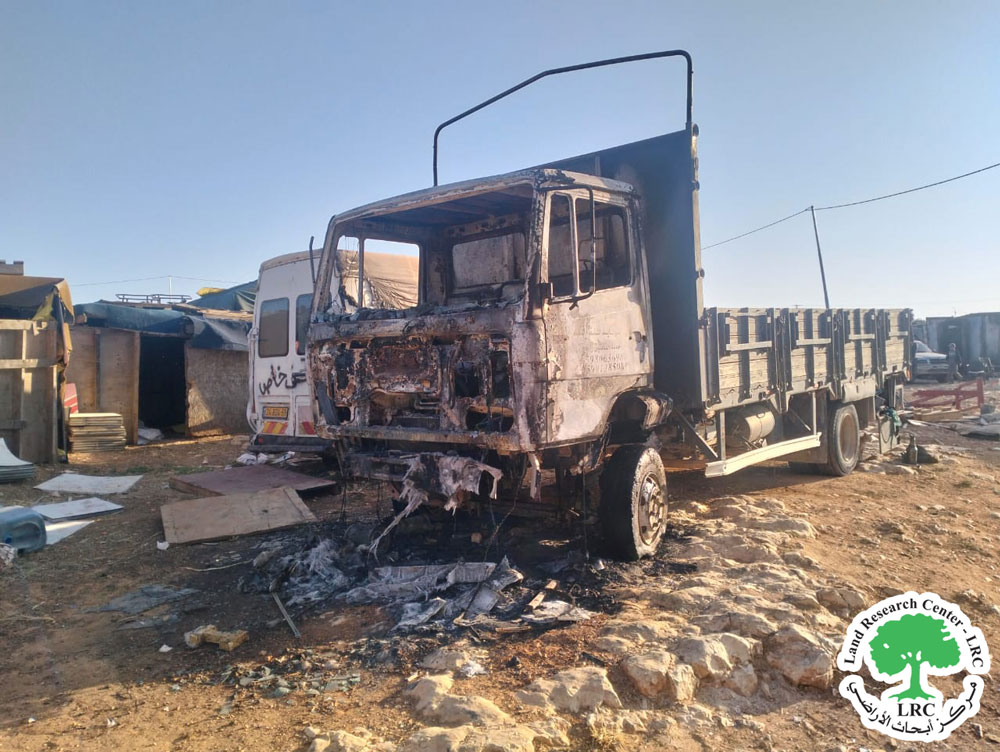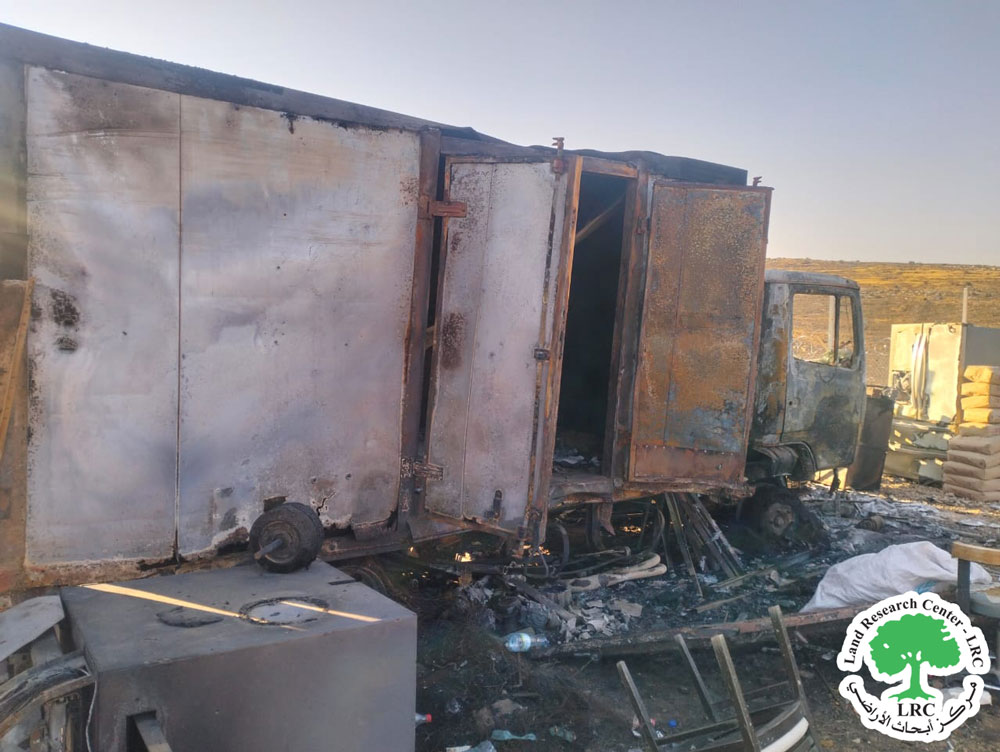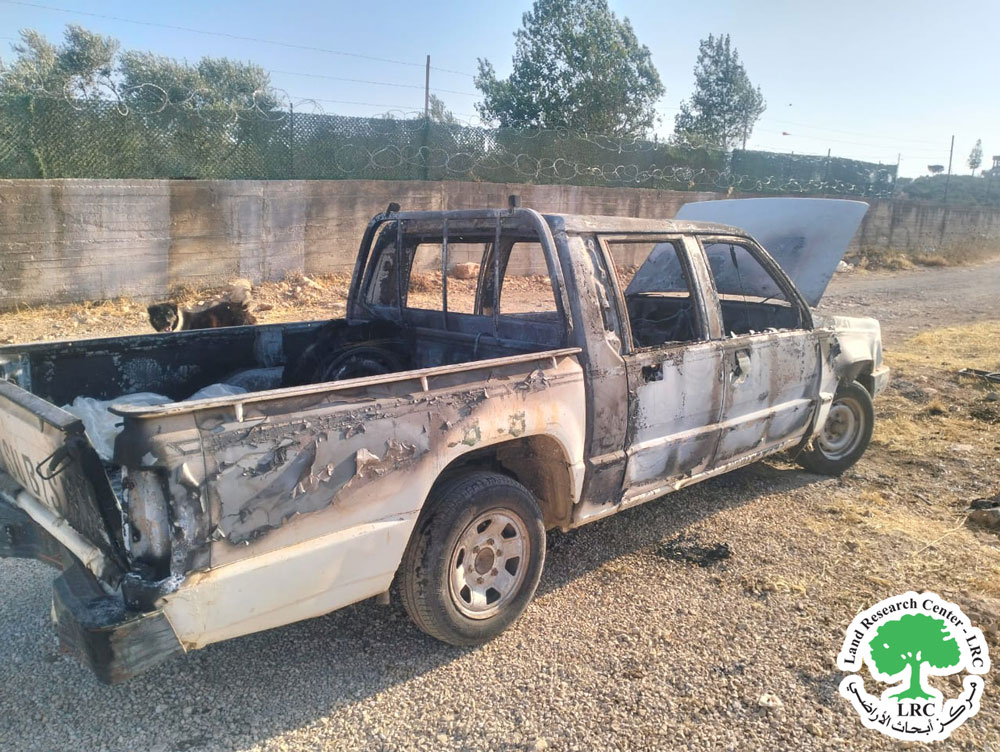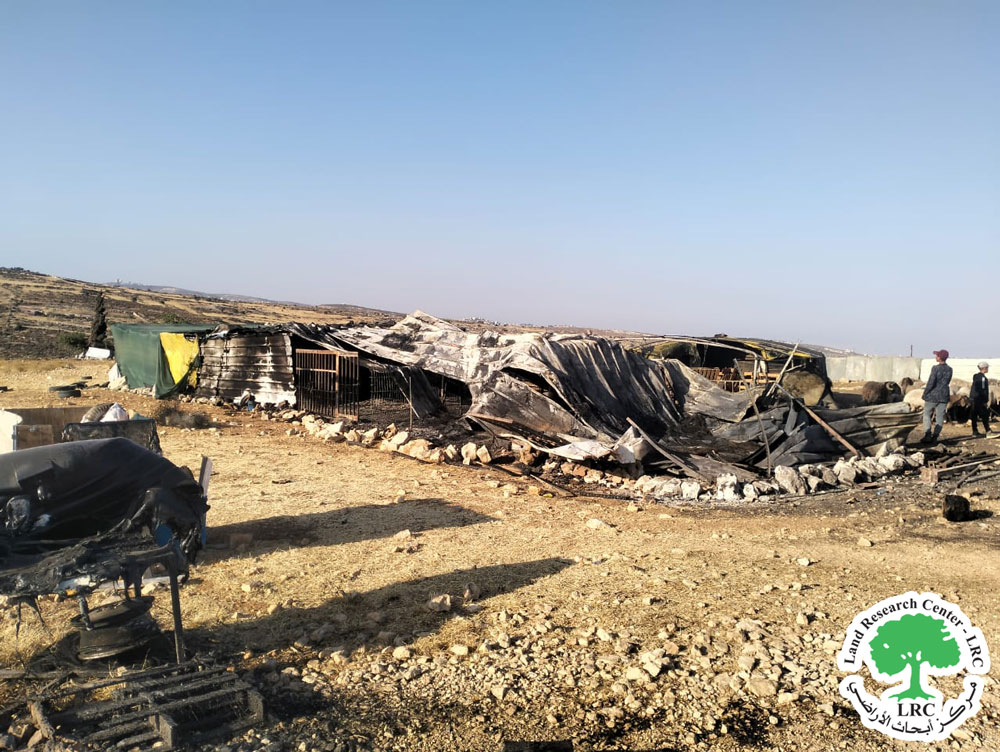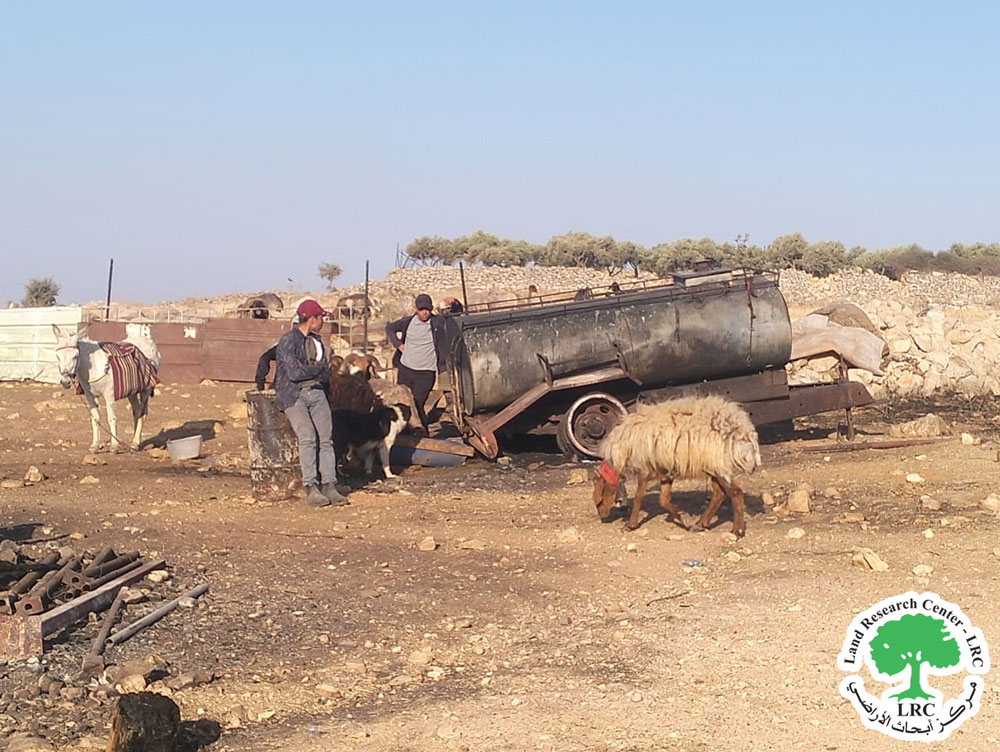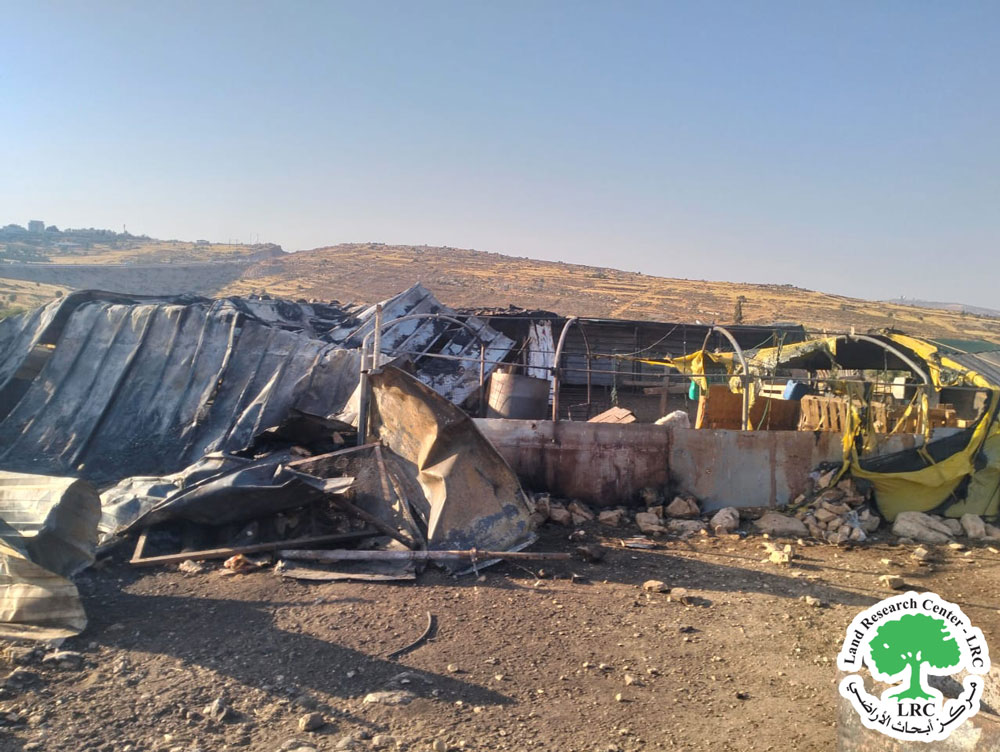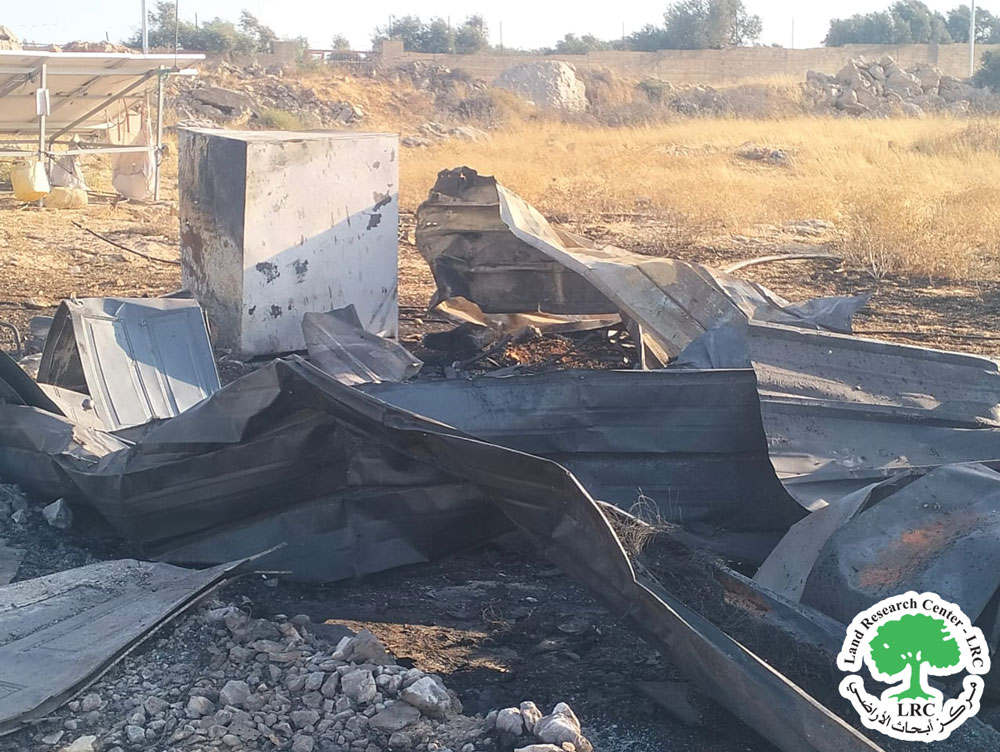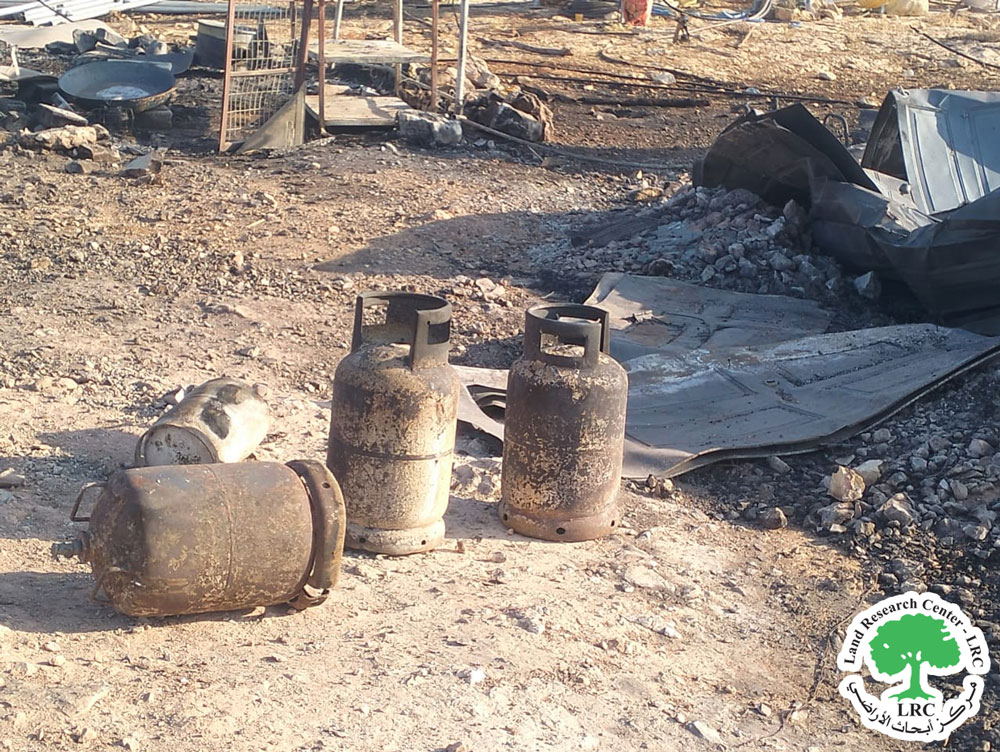Settlers Burn Agricultural Properties and Animal Feeds in Deir Dibwan , North east Ramallah
Violation: Burning agricultural properties and animal feeds.
Location: Deir Dibwan, northeast Ramallah.
Date: June, 4th 2025.
Perpetrators: Settlers.
Affected party: Three agricultural families from the town.
Details:
In June,4th 2025, a group of settlers targeted ‘Al Maghara’ area located north Der Dibwan town and adjacent to bypass road no.60.
About 100 settlers stormed the town, arriving by their own private buses from bypass road no.60, divided themselves into three groups and headed towards the tents and the farmers’ properties living in the town’s outskirts as 900 meters away from bypass road, as setting fire in agricultural tents as well as agricultural vehicles, causing serve and extension damage to three families live in this area, the fire consumed most of belongings. The presence of the occupation hindered the arrival of civil defense vehicles to the fire location.
The table below shows the details of the damages:
The farmer | Family member | Female number | Children number | The damage |
Shhadeh Musbeh Ameen Musbeh |
6 |
4 |
2 |
|
Amir Saleh Abdallah Mustafa |
4 |
2 |
2 |
|
Akram Ahmad Issa Za’arer |
7 |
3 |
3 |
|
Mr. Shhadeh Musbeh told to field researcher as follows:
‘’ We have been living here on the out of Deir Dibwan for over40 years, sheep herding is our source of income, as we own 200 sheep and live in agricultural and residential tents. ‘’
He added:
‘’What happened on Wednesday afternoon was that a large group of settlers got off special buses that were transporting them along bypass road. They divided themselves into groups and headed toward our tents. I immediately evacuated all the sheep and let them toward the town, knowing that the town’s houses are only 90 meters away from our tents. I also asked our women and children to leave the area before the settlers arrived. About 15 minutes after getting off the buses, they arrived and set fire to our tents and belongings, leaving us with nothing- not even the animal feed, which they also burned. The losses were significant. After that, they headed toward other farmers near me, withing minutes, the residents of the town rushed to the area in an attempt to protect it, and the settlers had no choice to flee.’’
It’s worth mentioning that settlers establish a new pastoral outpost in near area over past months, increasing problems that the residents in the town suffer from it, as most of the lands were blockade from colonial practices.
About Deir Dibwan town:
5 kilometer east Ramallah, Ramallah is surrounded by Ramon and Ein Yabrud (north), Beitin (west), Al-Nuwe’ma and Ein Dyuk Al-Fuqa (east) , Anatta, Mikhmas. Burqa from the south.
Deir Dibwan has a total population of 4169 people according to statistics conducted in 2017. It has a total area of 74,285 of which 1,789 dunums are a built-up area of the village. The occupation devoured (4121) dunums for the following purposes:
1: settlements confiscated 1346 dunums:
Settlement’s name | Establishing year | Area of confiscated land | Number of settlers |
Kokhav Yaacov
| 1984 | 51.4 | 3,918 |
Mitzpe Danny
| Unavailable | 87.7 | Unavailable |
Maale Mikhmas | 1981 | 1,144 | 980 |
Neve Erez | Unavailable | 62.7 | Unavailable |
2: Bypass roads (458 and 457) devoured over (1,543) dunums.
3: Military camps devoured (1,232)dunums
According to Oslo conventions The areas are clarified in donums as following:
- Area A (307) donums
- AreaB (12,925) donums
- Area C (61,052) donums
Burning Agricultural Structures and Its Environmental Impact:
Recently, residential and Bedouin communities have become a target of the Israeli occupation and its settlers, especially those that rely on sheep herding as their main source of income. The attacks have not been limited to demolitions and continuous threats of displacement, they have escalated to a more sever crime- the crime if arson. Palestinian structures and properties are being deliberately set on fire, significantly increasing the damage and causing serious harm to the surrounding Palestinian environment. This is devastating since many of these agricultural structures are made of tents and contain sponge and plastic materials. This action involve the use of plastic materials and chemical pesticides, which release various pollutants into the air, causing distress and harm to humans , animals and agricultural produce.
Despite the fact that the Israeli Ministry of Environmental Protection is the responsible authority for environmental protection and pollution control, as stated on its official website—where it mentions that "air pollution does not stay in one place, nor does it know borders; it spreads according to climate conditions, winds, temperature, and humidity"—the primary contributors to air pollution are the settlers in the settlements and outposts across the West Bank. The burning of agricultural structures, trees, crops, other buildings, and even Palestinian homes and vehicles is a widespread practice among settlers.
According to the Israeli Criminal Procedures Order of 2022, "burning waste in an illegal location is subject to a fine of 2,000 shekels for an individual and 12,000 shekels for a company." The order further acknowledges that such practices can lead to chronic illnesses and an increased risk of cancer due to the inhalation of toxic substances.
The burning of such agricultural rooms is no less harmful than burning waste; in fact, it is even more detrimental because it occurs on agricultural land that is privately owned by Palestinians. Therefore, the violation should be considered more severe due to the illegal entry onto someone else's property and the environmental harm caused.
Undoubtedly, the actions of the Israeli side violate not only international laws but also Israeli laws themselves. Referring to the details of this case, the Israeli Penal Code of 1977 and its amendments stipulate that trespassing on someone else's property with the intent to commit a crime is punishable by law. Article 447 of the Penal Code states:
"Anyone who does any of the following with the intent to intimidate, insult, or harass the property owner, or to commit a crime, shall be punished with imprisonment for two years:
(1) enters or crosses the property;
(2) enters the property unlawfully."
(b) A crime is committed under this section if the offender carries a firearm or a sharp weapon, and the punishment is imprisonment for four years.
Reading the text of this article, it is clear that the Israeli Penal Code criminalizes the mere act of entering someone else's property without authorization, with the intent to insult, harass, or intimidate, and punishes it with a two-year prison sentence. The punishment is doubled if the offender enters the property and commits a crime, such as using a weapon or sharp tool, or even vandalizing agricultural land by cutting, burning, or destroying it. This is explicitly prohibited in the text of the aforementioned Penal Code.
مشروع: حماية الحقوق البيئية الفلسطينية في مناطق "ج" SPERAC IV - GFFO
Disclaimer: The views and opinions expressed in this report are those of Land Research Center and do not necessarily reflect the views or positions of the project donor; the Norwegian Refugee Council.
إخلاء المسؤولية: الآراء ووجهات النظر الواردة في هذا التقرير هي آراء ووجهات نظر مركز أبحاث الأراضي ولا تعكس بالضرورة وجهات نظر أو مواقف الجهة المانحة للمشروع؛ المجلس النرويجي. للاجئين
